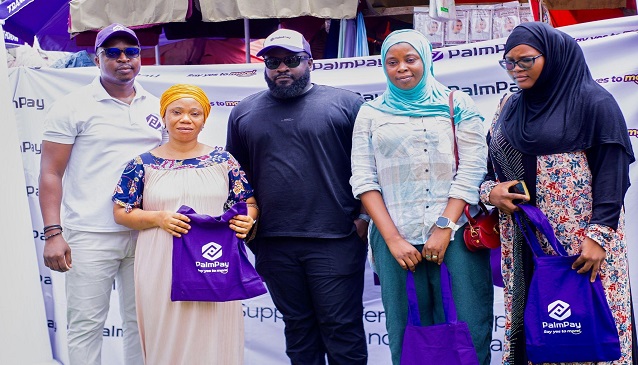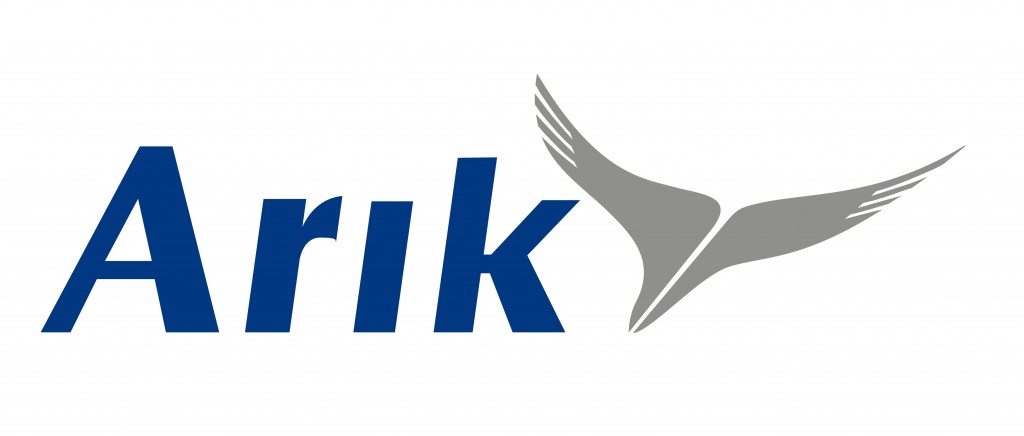News
M&A Transactions in Sub Saharan African Hit $5.7Bn in Q12015

Thomson Reuters, the world’s leading source of intelligent information for businesses and professionals, has released the quarterly investment banking analysis for the Sub Saharan Africa region.
According to estimates from Thomson Reuters / Freeman Consulting, fees for Investment Banking services in Sub Saharan Africa totalled $83.4 million during the first quarter of 2015, up 49% compared to the same period in 2014 ($55.9 mil), driven by increases across equity, debt and syndicated lending fees.
Sneha Shah, Managing Director, Africa, Thomson Reuters, said: “The value of announced M&A transactions involving Sub Saharan African targets reached $5.7 billion during the first quarter of 2015, almost double the value recorded during the same period in 2014 ($2.9 bln), despite falling 65% from the previous quarter. The most targeted nation by value was South Africa, accounting for 48% of activity, followed by Nigeria (33%). South Africa was also the most active buyer in the region, while Canada was the most active foreign buyer.”
“Equity and equity-linked issuance in Sub Saharan Africa totalled $2.5 billion during the first quarter of 2015, an increase of 141% from the value recorded during the same period in 2014 ($1.0 billion) and the highest first quarter total since 2007. Sub Saharan African debt issuance reached US$4.1 billion during the first quarter of 2015, 70% more than the value recorded during the same period in 2014, and the highest first quarter total in the region since 2011,” she added.
In respect to investment banking, fees from equity capital markets underwriting increased 46% year-on year to reach $30.3 million, marking the highest first quarter total in the region since 2011.
Syndicated lending fees also increased from the first quarter of 2014, growing 122% to $10.4 million, while debt capital markets underwriting fees increased twelve-fold to $25.6 million.
Fees from advisory on completed M&A transactions fell 39% to $17.2 million, marking the slowest first quarter total since 2005.
Rand Merchant Bank topped the Sub Saharan African fee league table during the first quarter of 2015 with a 9% cut of the fees. Citi and Deutsche Bank followed in second and third positions, respectively.
As for M&A activity during the first quarter of 2015, Eroton Exploration & Production Co Ltd acquired a 45% stake in the Oil Mining Lease 18 (OML 18) of the Nigerian state-owned Nigerian National Petroleum Corp for $1.1 billion in March.
The deal was the largest in the region during the first quarter of 2015. Boosted by this deal, Energy & Power was the most active sector during the first quarter of 2015, accounting for 29% of M&A activity.
Rand Merchant Bank topped the 1Q 2015 announced any Sub Saharan African involvement M&A ranking, with $1.4 billion, while Investec topped the Sub Saharan African target M&A ranking.
Equity capital markets was also active during the first three months of 2015, follow-on offerings dominated the market, with the largest from South African Aspen Pharmacare Holdings in March. 69% of deals, by proceeds raised, involved a South African issuer.
The Healthcare, Financial, and Energy & Power sectors were the most active for equity issuance in the region during the first quarter of 2015. UBS and Citi shared the top spot in the Sub Saharan African Equity Capital Markets league table during the first quarter of 2015.
Debt capital markets in Sub Saharan Africa recorded the highest first quarter total in the region since 2011. South African Eskom issued the largest bond in the region so far this year. The state-run utility sold $1.2 billion in 10-year fixed-rate bonds in February.
Deutsche Bank took the top spot in the Sub Saharan African Debt ranking during the first quarter of 2015 with US$1.0 billion, or a 26% share. Rand Merchant Bank and Standard Bank Group followed in second and third positions.
News
UK Minister for Africa Visits Nigeria to Deepen Strategic Partnership

The United Kingdom’s Minister for Africa, Lord Collins of Highbury, has concluded a three-day visit to Nigeria, aimed at reinforcing the UK-Nigeria Strategic Partnership.

He reaffirmed the UK Government’s strong commitment to deepening trade and investment ties between the United Kingdom and Nigeria.
During his visit, Lord Collins met with senior Nigerian government officials, business leaders, civil society representatives and United Nations agencies.
These engagements underlined the UK’s long-term drive to support Nigeria’s prosperity and stability while deepening bilateral cooperation for transformative growth across our shared priorities.
A key highlight of the visit was Lord Collin’s bilateral meeting with Nigeria’s Minister of Foreign Affairs, Yusuf Tuggar, in which both parties reaffirmed their unwavering commitment to strengthening economic ties and promoting regional security. The Minister was joined by the UK’s Trade Envoy to Nigeria, Florence Eshalomi MP.
Lord Collins also met with Deputy Speaker of the House of Representatives, Hon. Benjamin Kalu, and discussions focused on opportunities to strengthen engagement between UK’s parliament and Nigeria’s National Assembly and the importance of furthering women’s participation in politics.
Speaking on his visit, the UK Government’s Minister for Africa, Lord Collins said: “Nigeria and the UK share a rich, ambitious relationship: one that is deeply rooted in respect.
“Our Strategic Partnership is at the forefront of this, and my visit has focused on how our countries can continue deepening our cooperation on key issues such as trade and investment to drive economic growth and deliver prosperity for us all.”
The Minister held discussions with United Nations representatives on the ongoing reform of the UN system, its implications for Nigeria and how the reform can effectively support those most in need, particularly in Northeast Nigeria, whilst also contributing to global humanitarian efforts.
Lord Collins also met with civil society leaders to discuss electoral integrity and governance reforms, reinforcing the UK’s commitment to democratic values and community empowerment.
He later visited Nigeria’s Anti-Kidnap Fusion Cell: a key security initiative supported by UK expertise through the National Crime Agency and the Integrated Security Fund, which plays a vital role in enhancing local safety and combating serious crime.
Also commenting on the visit, the British High Commissioner to Nigeria, Dr Richard Montgomery, said: “Driving growth is central to the UK’s foreign and development policy. Lord Collins’ visit to Nigeria underscores the UK’s unwavering commitment to deepening our shared prosperity through expanded trade and investment. We are proud to stand alongside Nigeria as it forges a resilient and dynamic economy.”
This visit underscores the UK’s enduring partnership with Nigeria – built on mutual respect, shared goals, and a vision for a prosperous future for both nations.
News
PalmPay Launches CSR Initiatives to Empower Women, Foster Financial Literacy in Northern Nigeria

In a strategic move to expand financial inclusion in Nigeria, leading mobile banking platform, PalmPay has launched a series of CSR programs across Kano and Kaduna. The CSR initiative named “Passing the Baton” represents the brand’s commitment to passing on knowledge and providing the resources individuals and businesses need to achieve financial independence and drive economic empowerment.

This initiative is a bold move by PalmPay to bridge the opportunity gap in the North by providing financial literacy training and micro-business branding support to 5,000 women-owned businesses in Kano and Kaduna. This strategic initiative reaffirms PalmPay’s commitment to inclusive development and economic empowerment, particularly in underserved regions.
“At PalmPay, we believe that real financial inclusion must be far reaching and cover the grassroots,” said Chika Nwosu, Managing Director of PalmPay. “Our new CSR program is focused on supporting gender equity by equipping women with the knowledge, tools, and visibility they need to thrive as entrepreneurs in their communities.”
Through this initiative, beneficiaries will receive free health insurance, hands-on training workshops, enhanced store branding to boost visibility, and branded merchandise to strengthen their business presence.
The initiative is part of PalmPay’s broader strategy to extend its innovative solutions, expand its footprint in Northern Nigeria, while building sustainable partnerships with local stakeholders for long-term impact.
In a show of support, His Royal Highness, the Emir of Kano, Dr. Muhammadu Sanusi II, has endorsed the initiative, calling on other stakeholders to join forces with PalmPay in ensuring the North benefits fully from the growing digital economy. PalmPay has received commendation from community stakeholders, as the initiative aims to serve as a model for similar projects across other northern states.
As PalmPay continues to scale across Nigeria, the company remains committed to bridging the financial inclusion gap and empowering underserved groups, particularly women and youth, through its innovative solutions and impact initiatives.
News
EFCC Witness Admits Writing Off Arik Air’s $2.3M Debt Amid N76Bn Fraud Trial



 E-Financial2 days ago
E-Financial2 days agoSEC Alerts Public on Silverkuun, Trending Dubious Investment Schemes

 Telecom2 days ago
Telecom2 days agoGlo, Huawei, Communications Ministry Bring Digital Services to Abuja Village

 General News2 days ago
General News2 days agoTripoint Travels Hosts Pre-GEC Brunch for Nigerian Delegates Ahead of Global Entrepreneurship Congress 2025

 News2 days ago
News2 days agoPalmPay Launches CSR Initiatives to Empower Women, Foster Financial Literacy in Northern Nigeria

 E-Financial2 days ago
E-Financial2 days agoAfrica Cross-border Payments Set to Hit $1 trillion by 2035

 Telecom2 days ago
Telecom2 days agoExperts @ ABoICT 2025 Warn of Digital Disaster Risks in Nigeria Without AI Governance

 E-Financial2 days ago
E-Financial2 days agoSANEF, CIBN Partner to Expand Agency Banking Certification

 General News1 day ago
General News1 day agoUche Uzoebo, SANEF CEO Makes Case for More Financial Inclusion Strategies Targeting Women



























